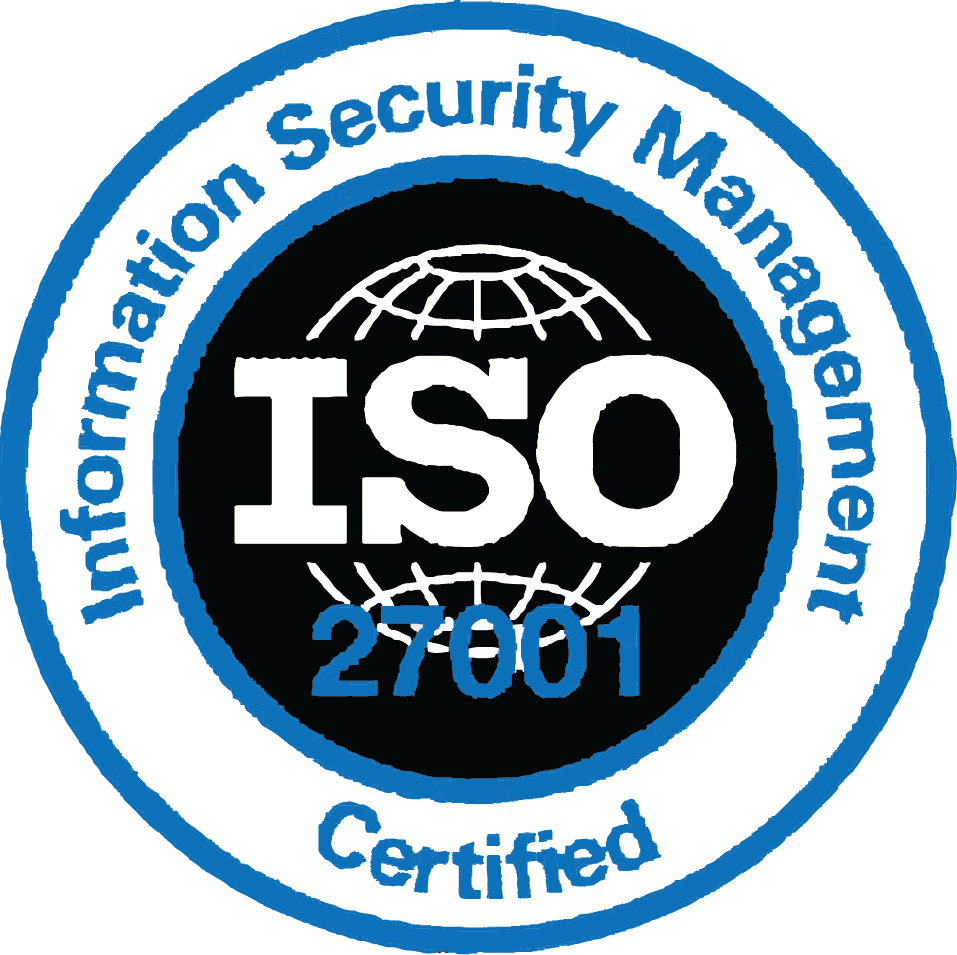In the ever-evolving landscape of enterprise data management (EDM) in the digital age, organizations are grappling with the challenge of not only governing their vast reservoirs of information effectively but also ensuring accessibility, consistency, and security. The realm of EDM undergoes a relentless evolution driven by the quest for innovative solutions to leverage data for informed decision-making. Notably, the rise of NLP and its synergy with generative AI technologies marks a significant shift in recent years. Let’s delve into the transformative impact of NLP and generative AI on EDM, exploring how these advancements are reshaping the way organizations interact with and extract value from their data. Join us on this journey as we uncover success stories and forecast future trends that continue to shape the dynamic field of enterprise data management, highlighting the pivotal role of NLP in transforming data into a strategic asset to drives business growth and innovation.
As we bid farewell to another year and embrace the opportunities that lie ahead, the realm of enterprise data management (EDM) continues its relentless evolution. Businesses, in their quest for innovative solutions to leverage data for informed decision-making, have witnessed a significant shift in recent years, notably with the rise of Natural Language Processing (NLP) and its synergy with generative AI technologies. Let’s explore the transformative impact of NLP and generative AI on EDM, examining how these advancem ents are reshaping the way organizations interact with and extract value from their data.
Understanding NLP and Generative AI in Enterprise Data Management
Natural Language Processing (NLP), a subset of artificial intelligence, serves as a catalyst for seamless interaction between systems and human language. Its potential to revolutionize data handling and insights extraction positions it as a cornerstone in enterprise data management. Within the realm of EDM, NLP assumes a pivotal role by converting unstructured data—found in documents, emails, and various textual formats—into a structured and actionable format. This transformative force reshapes the landscape of how businesses handle and leverage their data assets. With its remarkable capacity to interpret and manipulate human language, NLP stands at the forefront of innovation, providing solutions that streamline data management processes, enhance data quality, and unlock new insights. As businesses grapple with the escalating volume and complexity of data, the integration of advanced NLP tools becomes a critical component for maintaining a competitive edge. Leveraging NLP enables organizations to not only enhance metadata management and facilitate efficient data discovery but also ensure strict adherence to security and compliance standards.
In the dynamic landscape of enterprise data management, the year 2023 witnessed a paradigm shift propelled by the widespread adoption of generative AI technologies. These technologies fundamentally transformed how businesses approach data management, analysis, and utilization. This post will delve into some of the noteworthy highlights of this transformation and explore its implications for the future.
How Different Areas Of EDM Are Evolving?
“In a way, this AI revolution is actually a data revolution,” asserted Salesforce cofounder and CTO Parker Harris during Dreamforce 2023 keynote, emphasizing the symbiotic relationship between AI and data. This statement underscores the crucial role of data in businesses, pointing towards the increasing necessity for effective data management strategies in 2024. As data assumes a more central role, the demand for scalable and secure EDM solutions is on the rise. Recent articles focusing on EDM have outlined its fundamental aspects and implications for business operations. These writings have explored the practical uses and benefits of EDM, emphasizing its importance in guiding the strategies and operations of modern businesses.
Over the past year, various areas of EDM have witnessed promising developments. Data management itself has seen a shift towards leveraging AI to enhance how data is organized and accessed. The data cloud sector has grown substantially, with businesses favoring cloud-based solutions for their flexibility, scalability, and seamless integration with tools designed for handling unstructured data.
In data protection and governance, there has been a continuous effort to fortify security measures, ensuring the safeguarding of sensitive information amidst evolving cyber threats. Database technologies have also evolved, particularly in handling and processing large data volumes more efficiently through the incorporation of generative AI.
Recent advancements in data integration and intelligent platforms have focused on better aggregating data from multiple sources, allowing for more comprehensive data analysis. The integration of AI and ML has further enhanced the capabilities of these platforms, providing deeper and more insightful analytical outcomes.
Leveraging NLP for Efficient Metadata Management
The integration of Natural Language Processing (NLP) into metadata management streamlines the organization and retrieval of enterprise data. By automating the extraction of relevant information from unstructured data sources, NLP significantly enhances the accuracy and efficiency of metadata tagging. This process not only saves time but also ensures consistency across large datasets. Key benefits include:
- Automated categorization of data, which reduces manual intervention and potential for human error.
- Improved searchability through enriched metadata, enabling more precise data retrieval.
- Enhanced compliance with data governance standards by ensuring accurate metadata assignment.
To further capitalize on NLP capabilities, organizations are now employing advanced algorithms that can understand context and semantics. This allows for the dynamic interpretation of data, going beyond simple keyword matching to understand the meaning behind the words. Such sophistication in metadata management leads to:
- Context-aware categorization, which aligns data with business-specific terminologies and concepts.
- Identification of relationships between different data elements, providing deeper insights and analytics.
- Scalability in processing large volumes of data without compromising on detail or accuracy.
Despite these advancements, the implementation of NLP in metadata management is not without its challenges. It requires a wellthought-out strategy that includes training the NLP models with domain-specific data to improve accuracy. Additionally, continuous monitoring and refining of these models are crucial to adapt to the evolving nature of language and enterprise needs. Organisations must also ensure that they are:
- Integrating NLP seamlessly with existing data management systems.
- Addressing privacy and security concerns when dealing with sensitive information.
- Keeping up with the latest NLP developments to maintain a competitive edge in data management.
Improving Data Accessibility and Discovery through NLP Techniques
The integration of Natural Language Processing (NLP) into enterprise data management systems has revolutionized the way organizations handle vast amounts of information. By leveraging NLP, companies can now enhance the accessibility of their data, making it easier for employees to find and utilize the information they need. This is particularly crucial in environments where time and efficiency are of the essence. NLP techniques enable the conversion of unstructured data into a structured format, which can then be seamlessly searched and analyzed.
To fully harness the power of NLP in improving data discovery, several steps can be taken:
- Implementing semantic search capabilities that understand the context of queries, providing more accurate and relevant results.
- Utilizing text analytics to extract entities, relationships, and sentiments from textual data, thus enriching the metadata for better searchability.
- Developing chatbots and virtual assistants that can interpret natural language queries and provide instant access to the required datasets or reports.
These advancements not only streamline data retrieval processes but also empower employees to make data-driven decisions swiftly, bolstering the overall productivity of the organization.
Optimizing Enterprise Data Analysis with Advanced NLP
Tools The integration of advanced Natural Language Processing (NLP) tools into enterprise data management strategies has revolutionized the way companies interpret vast amounts of unstructured data. By leveraging these sophisticated algorithms, businesses can now extract valuable insights from text-based content at an unprecedented scale and speed. This optimization leads to more informed decision-making and enhanced customer experiences. However, the implementation of NLP is not without its challenges. The complexity of language nuances and the need for continuous learning models require significant computational resources and expertise. Additionally, there is an inherent risk of bias in the training data, which can skew the analysis. Despite these cons, the pros of improved accuracy in sentiment analysis, trend prediction, and automated summarization make NLP an indispensable tool in the modern datadriven enterprise landscape.
What does the data say?
In comprehending the transformative potential of generative AI, numerous organizations across diverse industries are already cognizant of its capabilities, as per insights derived from a recent Forrester survey conducted on behalf of Dataiku. A remarkable 83% of respondents acknowledge that they are in the phase of either exploring or experimenting with generative AI. Notably, over 60% of these organizations deem generative AI critically or highly important for their business strategy.
Leaders emphasize their commitment with identified use cases already in the pipeline, spanning applications from elevating customer experiences (64%) to aiding product development (59%), self-service data analytics (58%), and knowledge management (56%). Despite a positive sentiment, the survey notes roadblocks, including concerns about violating data protection laws (31%), challenges in skills development and governance (31%), and a significant emphasis on the risk of biases impacting generative AI outputs (50%+).
The survey also shed light on amplified risks when organizations fail to provide the essential infrastructural prerequisites for generative AI adoption. Notably, the lack of a robust data infrastructure emerged as a major barrier, with 35% of respondents citing inadequate support for the consumption, storage, and sharing of massive volumes of data. Similar concerns were echoed concerning integration with existing infrastructure (35%), computational limitations (27%), governance mechanisms (35%), interpretability and explainability of AI (25%), talent and skill gaps (31%), and scalability of the involved models.
In summary, To address these implementation challenges, the survey suggested adopting an approach that leverages collaborative capabilities through AI platforms. These platforms can offer prepackaged solutions for accelerated development, a structured environment for seamless integration, robust frameworks, and security features for standardization, governance, and compliance.
Future Trends: The Evolving Landscape of NLP in Enterprise Data Strategies
With the relentless advancement of technology, enterprise data management is poised to undergo transformative changes, particularly through the application of Natural Language Processing (NLP). NLP’s ability to decipher the nuances of human language is becoming increasingly sophisticated, enabling machines to understand, interpret, and manipulate human language in ways that were previously undefined. This progression is setting the stage for more intuitive data analytics, where insights are gleaned not just from structured data, but from the vast reservoirs of unstructured, textual data that enterprises collect.
Anticipating the future, we see a trend where NLP will be deeply integrated into real-time decision-making processes. The emergence of context-aware NLP systems is expected to revolutionize how businesses interact with their data, allowing for more personalized and relevant data experiences. These systems will be capable of understanding the sentiment, intent, and even the cultural nuances embedded within text, providing a level of insight that is finely tuned to the needs of the business. This will empower organizations to respond swiftly to market changes and customer feedback, maintaining a competitive edge.
Moreover, the synergy between NLP and other cutting-edge technologies, such as machine learning and AI, is set to redefine the boundaries of what’s possible in data management. The development of self-improving algorithms means that NLP applications will become more accurate and efficient over time, reducing the need for human intervention and allowing for more sophisticated data strategies. This self-evolving aspect of NLP tools will be crucial for businesses looking to scale their data analytics capabilities and derive actionable insights from an ever-growing pool of data sources.
Conclusion
In summary, the dynamic integration of Natural Language Processing (NLP) and generative AI within enterprise data management (EDM) is reshaping how organizations handle data. This fusion streamlines metadata management, enhances data accessibility, and optimizes analysis, marking a significant evolution in EDM domains. From generative AI adoption challenges to ongoing NLP advancements, these technologies play a critical role in reshaping data strategies. Anticipated trends, including context-aware NLP and synergies with cutting-edge technologies, signal a transformative era where data becomes a potent driver for informed decision-making, business growth, and innovation. Embracing this data revolution, organizations are poised to unlock unprecedented possibilities in leveraging their data as a strategic asset.
Here’s where VE3 can help by offering a suite of cutting-edge solutions tailored to support organizations in harnessing the power of NLP and generative AI within their EDM frameworks. Our platform provides advanced tools for metadata management, data accessibility, and analysis, enabling seamless integration of these technologies into existing workflows. To know more, explore our innovative digital solutions or contact us directly.


















